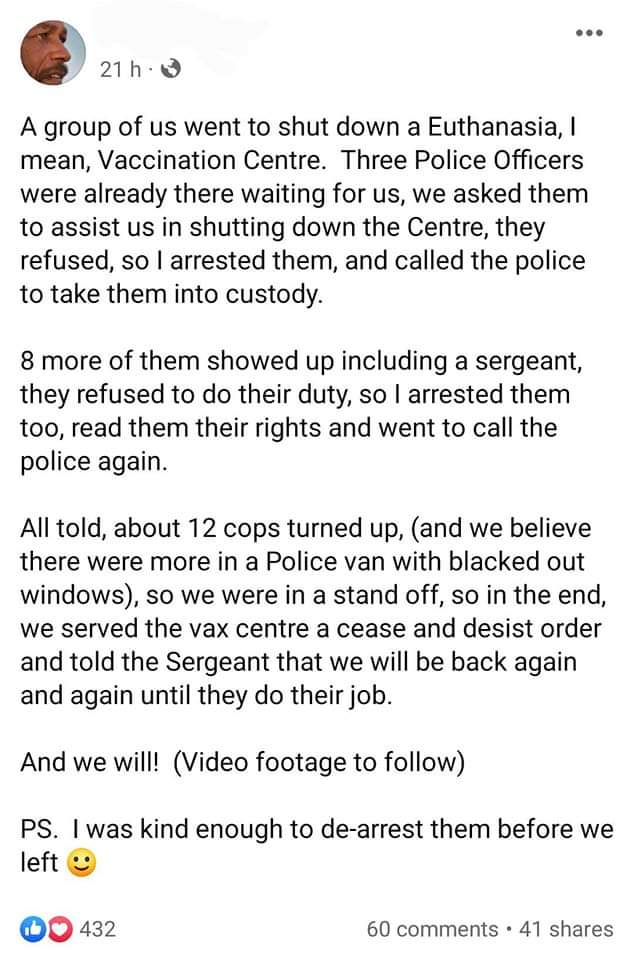this post was submitted on 13 Feb 2024
502 points (98.5% liked)
InsanePeopleFacebook
2611 readers
183 users here now
Screenshots of people being insane on Facebook. Please censor names/pics of end users in screenshots. Please follow the rules of lemmy.world
founded 1 year ago
MODERATORS
you are viewing a single comment's thread
view the rest of the comments
view the rest of the comments

American here, how do you de - arrest someone? Over here once you're arrested only a judge // jury can say you're not guilty, the person that made the arrest, or the police don't have any say in that part of the criminal justice system.
The police showed their BOFA docs and he was pretty much forced to do so, it wasn't necessarily his choice here.
It happens all the time. Officer makes the decision to arrest, puts the person in handcuffs and the car. A supervisor shows up, a story gets changed, or an officer finds out that something proves someone is lying, and the person is released. I've seen it happen when a non-violent offender had warrants, but it turned out they were having a kid's birthday party (discovered when the dad came out to check on the mom because she'd been outside 'smoking' for longer than usual).
Arrested is a step up from detention. Detention = you're not free to leave. Arrested = you are not free to go, you're coming with the officer to jail, and they have belief you committed a crime that you will be charged with (or have a warrant, thus already charged). There is nothing that says once arrested an officer can't take off handcuffs and let you go. There really isn't that much distinguishing the two in the law, except for statutes about identifying yourself (where I live, anyway). My laws use the word custody in far greater amounts than arrest.
As a fellow US citizen, my American brain can also not comprehend this. How do you de-shoot someone?!
If you're de-arrested you're not locked in a cell (custody). If you're released after questioning it's being de-arrested. If you're held in a cell during any of it you can't be de-arrested, you have to be "released without charge".
https://www.bbc.co.uk/news/blogs-magazine-monitor-29784497
https://www.theguardian.com/world/2006/mar/01/law.emmabrockes
TLDR:
Police can release without charge.
That's different than being arrested. Police can hold you for like 24 hours without charging you with anything. Once your officially charged and arrested it's in the system and goes at the speed of the system.
The opposite of arresting someone is to release them, and police can do it.
Charging someone with a crime is a separate process done by the prosecutor's office. They can also drop charges.
Can't the AG just decline to prosecute and release you? Being arrested =/= being charged after all.
That can and does happen, but it's still a process that takes months at minimum. Months that your either sitting in jail, or if you're one of the privileged, you'd be sitting out on bail, possibly on house arrest depending on if the judge set any conditions to your release upon bail.
My point was that being arrested does not require a jury to release you unless you've been actually charged with something.